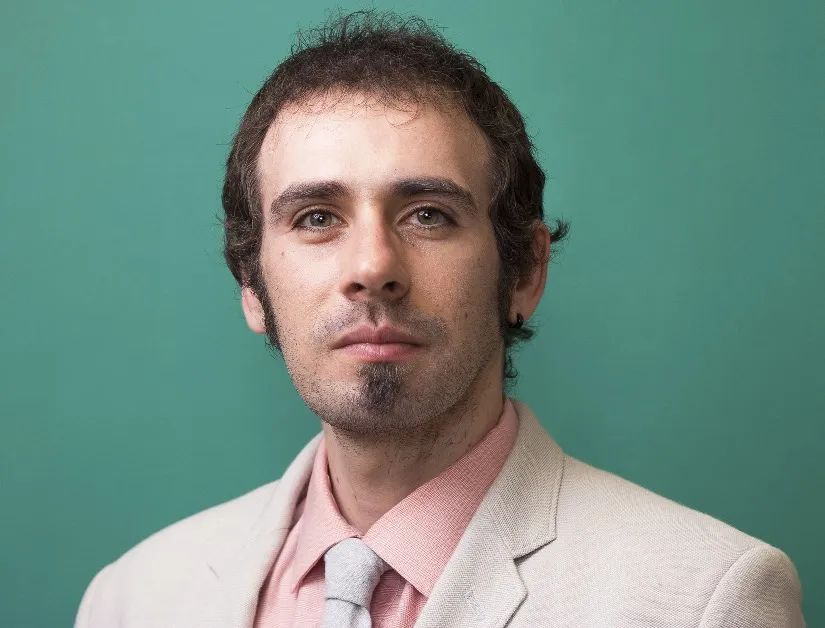内容来源:OpenScience
如何在学术写作中讲好一个故事
报告信息
题目:An introduction to narrative: the invisible logic behind communicating effectively
报告语言:English
分享嘉宾:Robby Nadler, UC Santa Barbara

Dr. Robby Nadler directs the Academic, Professional, and Technical Graduate Writing Development Program for UC Santa Barbara. Previously, he directed the writing centers for the University of Georgia. He is the most recently elected chair of the STEM writing group for College Composition and Communication as well as a reviewer for the National Science Foundation. His current research explores big data and non-traditional basic writing sites associated with grant writing in the sciences and the rhetorics behind Zoom fatigue.
摘要
One of the fundamentals of good communication happens to also be one of the least considered: narrative. Whether you are writing your dissertation, giving a brief technical report to investors, or communicating your research to other scientists, narrative is required. But what is narrative, and why does it matter? A simple way to consider narrative is to think of storytelling. For scientists, storytelling might seem childish and entirely out of place, but this isn’t the case. After all, how are you supposed to convince grant reviewers that your research into alternative forms of energy deserves to be funded? How do you connect the various chapters in a dissertation so that the work doesn’t read like five separate pieces? Through narrative! But it isn’t that simple; narrative has specific conventions and applications when it comes to academic writing—which can be particularly hard for Chinese scholars communicating in a world driven by American narrative. This presentation will introduce attendees to narrative and contextualize cultural differences. From there, attendees will learn how to incorporate narrative into their writing to better position the narratives in their own works. Such skills will improve writers’ abilities to connect with their audiences and will provide strategies to execute essential writing tasks, including writing introductions and topic sentences.
时间
- 北京时间[GMT+8] 12月2日(周五) 11:00~12:30
- 欧洲中部时间[CEST] 12月2日(周五) 4:00~5:30
- 美国东部时间[EDT] 12月1日(周四) 22:00~23:30
Zoom ID: 913 9401 0836
报告流程:报告90分钟,提问15分钟
主持人:Haiyang Jin (New York University Abu Dhabi)
其它:本次线上报告不提供录屏
组织团队(按名字首字母倒序排列)
COSN 学术策划小组
张晗(博士), A*STAR, Singapore
张磊(博士), University of Vienna, Austria
楊毓芳(博士), Freie Universität Berlin, Germany
杨金骉, MPI Psycholinguistics, the Netherlands
徐婷(博士), Child Mind Institute, USA
肖钦予, University of Vienna, Austria
刘泉影(博士), 南方科技大学
王鑫迪(博士), 北京慧脑云
王庆(博士), 上海精神卫生中心
金淑娴, Vrije Universiteit Amsterdam, the Netherlands
金海洋(博士), New York University Abu Dhabi, UAE
胡传鹏(博士), 南京师范大学
葛鉴桥 (博士), 北京大学
高梦宇(博士), 北京师范大学
耿海洋(博士), 天桥脑科学研究院
陈志毅(博士), 第三军医大学
陈妍秀(博士), 中科院心理所
陈骥(博士), 浙江大学
曹淼(博士), 北京大学
neurochat团队
张文昊(UT Southwestern Medical Center, USA)
张洳源(上海交通大学)
张磊(University of Vienna, AUT)
应浩江(苏州大学)
徐婷(Child Mind Institute, USA)
王鑫迪(北京慧脑云)
滕相斌(MPI for Human Development, DEU)
鲁彬(中国科学院心理研究所)
孔祥祯(浙江大学)
胡传鹏(南京师范大学)
邸新(New Jersey Institute of Technology, USA)